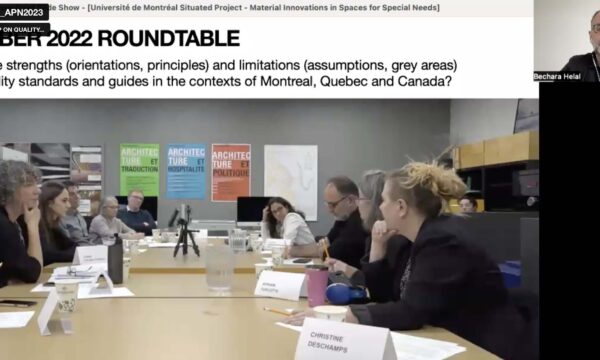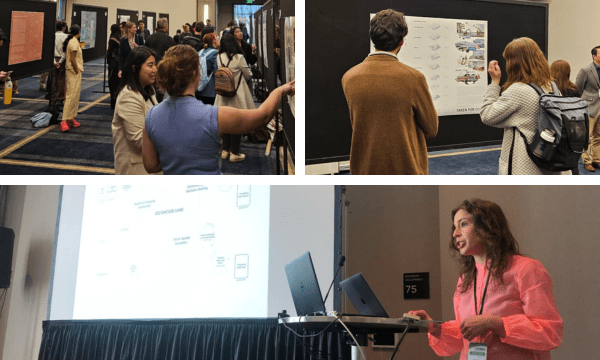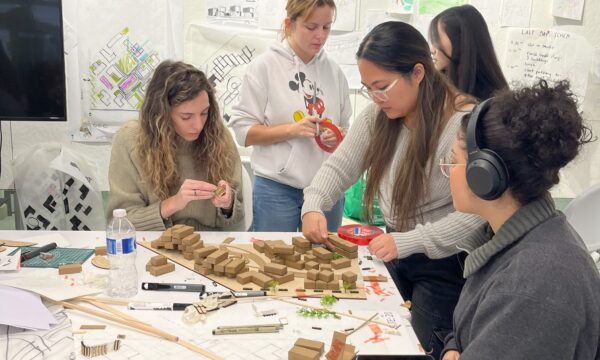Photo of a tactile map, designed and constructed by Anna Camilleri of Redefine Arts. The map, designed to be pleasing to touch, represents Cabbagetown in Toronto. Felt circles for trees, ribbons for roads, wooden blocks for buildings, and the street names spelt out in braille are gemstones.
Disabled folks are constantly put in a position in which they must think ten steps ahead in order to access cultural events. TMU researchers, Justine Bochenek and Dr. Samantha Biglieri from the HAP Lab got to thinking, what if some of the emotional labour that is involved in accessing spaces was already done for these folks? The idea is to create simple and effective access solutions for people with disabilities at public events, therefore communicating that people with disabilities are welcome and that their access needs are not a burden. While we may never be ableto create a perfectly accessible space at all times, we can try to “fail the best we can” in pursuit of it.
The quality of built environments are directly impacted by who has access to planning and design processes. We want to understand the experiences of people with disabilities at events to better inform public engagement processes and quality in the built environment. The objective of the “Failing Better in Access” in Access project is to work directly with people with disabilities to develop a toolkit which will support proactive accessibility planning for arts-based community events and cultural planning. As planning researchers, we know that investments in cultural spaces and activities can contribute to a greater sense of wellbeing and belonging for the residents, as they are essential sites for place-making and community building.
Through the project’s initial literature review and policy scan, our team learned that people with disabilities have been reported to be less likely to participate in cultural events, as they have internalized that their access needs will not be met, and believe they will not be able to participate. We have been interviewing adult participants with disabilities who visited a disability-focused event, in order to review their experiences of the event; commenting on the accessibility of the event(s), as well as the feedback mechanisms available at the event(s). We hope to use this data to communicate with cultural planners and staff why accessibility is important and how even small access interventions can help people with disabilities feel more welcome at public events.
To learn more about the research site led by Toronto Metropolitan University, cliquez ici.click here.



